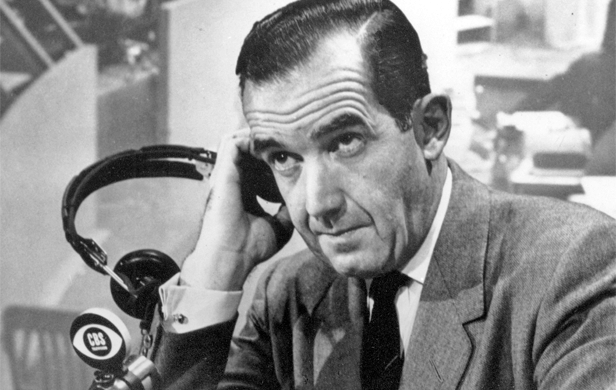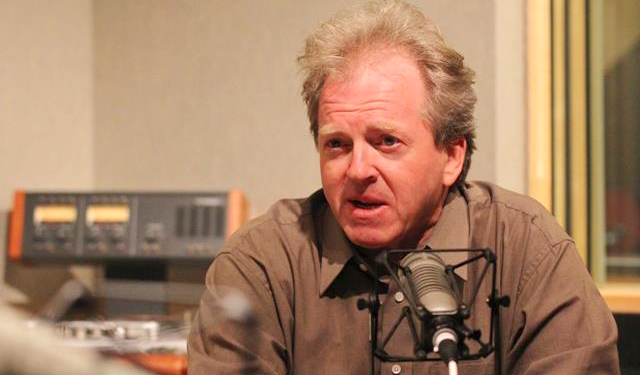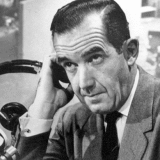
It’s fascinating to watch the print media in its death throes. In a way, I feel like dancing on Postmedia’s grave but somehow that doesn’t seem appropriate. I devoutly wish it hadn’t happened but, slow and painful though it may have been, it has.
Newspapers have been with us, for better or worse, for too long to be tossed aside like, well, yesterday’s newspaper. One can wade in with praise or vitriol, depending on one’s own obituary preferences, but to what end? The eminent journalist, Paul Willcocks, in a recent Tyee article, advised that it’s time to sit back, take a look around, and start making some decisions. Right, but first we must know what we want and what our choices are.
Lingering advantage
Newspapers bring many things, much of which is irrelevant except to those to whom it isn’t. If you’re in the market for a house or a car, those sections are invaluable; if not, you skip scores of pages to get to the Comics or Sports Pages. I’m going to assume that like me, it’s Public Affairs you’re interested in.
Since the arrival of radio in the 1920s, the papers have been on a slide when it comes to reporting news. They’re just too slow, their lingering advantage being the ability of the consumer to consider matters at leisure. To me, that “lingering advantage” has been important – TV and radio needs more. They try and sometimes succeed with talking heads, but it’s not the same as the Sunday Papers by the fire. The sad truth is, there just aren’t enough “Sunday by the fire” folks to make it pay.
Part of that “lingering advantage” is, or rather was, the opinion columns. Again, the talking heads are OK but just can’t match the ability to get you to sit back, in a place of comfort or perhaps need, relax and read a provocative article on something that interests you, cast it aside for a moment if the phone rings then pick it up again when you wish. This, I daresay, is why, along with sheer habit, most of you buy the newspaper.
Newspapers gave up what they did best
One article which gave me pause for thought was in a recent Globe by Marsha Lederman, who came to newspapers’ defence, her theme being that they held the government’s feet to the fire and did a wonderful job of keeping the Establishment honest. What this did was remind me that newspapers were indeed singularly well-placed to do just this and the problem was they hadn’t been doing it for years. It happens so seldom now that when it does occur, it stands out like a nuclear blast on a barren desert.
There have been some great examples of journalistic courage, integrity, and persistence – the most memorable being Watergate. There have been others and some closer to home. But perhaps Ms. Lederman can remind us of the last time the Globe and Mail actually got involved in a big exposé.
They were involved, all right, with Brian Mulroney and the bag full of money from Karl-Heinz Schreiber of the Airbus scandal but they no sooner got close to the mark and they abandoned ship and allowed Mulroney to get away with blue blooded murder.
One of their writers, the estimable Rick Salutin, even demonstrated that the Harper government retained a lawyer to set out the terms of reference for investigating Mulroney, that the terms of reference were a laughable whitewash, whereupon upon the lawyer was, with indecent haste, appointed Governor-General of Canada. It was a hell of a story but led by the “establishment man”, Andrew Coyne, the good ‘ol boys circled the wagons and insisted that Prime Minister Mulroney and lawyer Johnson were nice, decent Canadian boys whose actions really ought not to be questioned on solemn matters like this. It was really just another amazing coincidence for which Canadian politics is famous. Mr. Salutin suddenly wasn’t writing for “Canada’s National Newspaper” any more.
What happened to Vaughn Palmer?

Moving closer to home, the Vancouver Sun, during the NDP decade, were relentless in digging out scandals and near-scandals and it’s been fairly said that the government was brought down by Vaughn Palmer and his relentless exposure of the fast ferry scandal.
That was the high-water mark for hard-hitting, investigative journalism, because the moment the Liberals came to power in 2001, the gloves were back on.
Follow the money
I stop there because it’s not my purpose today to lay out all the sins of the media but simply to remind everyone that Ms. Lederman is quite right to say that the print media can and often does a helluva job in holding the establishment to account – but, for some reason, these days that all but stops if they get too close to the mark.
Why?
Perhaps the clue can be found in Vancouver. Big advertisers could see that, in fact, they were financing the wasting of their own money. They would give the paper millions of dollars to advertise a product and pay good money to political parties and the next thing they knew the government they supported was having the shit kicked out of it by the principal political writer for the paper they also supported. This was nothing new but now business saw the ways and means to retaliate, big time.
Advertising executives and their clients are not known for their love of democratic principles like free speech if they, in any way, interfere with their livelihood. I can’t speak for the writers but I can say without hesitation from my own experience that until recent days a decent talk show host wouldn’t tolerate interference from an advertiser or management for a second.
Then, almost overnight, trumped up reasons for firing became the order of the day, along with refusal to renew contracts and deliberate failure to bring on aggressive, young successors. There is the occasional hero like Ian Jessop of CFAX in Victoria, but they are on a short rope and don’t need reminding.
Blame the Internet
Whatever the reasons and however it was done, by the turn of this century, the muckraker was gone. A tough interview was no longer to be seen and editorials took on all of the excitement of a Sunday school sermon.
The inevitable happened. People stopped listening to radio and buying the newspaper. The owners gave all sorts of reasons, mostly that it was the fault of the Internet, but the fault was in themselves not the stars.
Revenues plummeted and, one by one, previously impregnable corporations found themselves groping for partnerships and buying a smaller companies in the vain hope of increasing their cash flow. The harder the executives tried to stem the flow the worse it got.
What will save the mainstream media?

Probably nothing, because they have no ability to make the difficult decisions needed. To put it bluntly, there’s no money available for them to recapture the respect of the public by going back to doing what Ms. Lederman says they are so skilled at.
It’s easy, and often fun, to point out the idiotic decisions media moguls have made in the past 20 years. But it’s no longer fun when you see the president of Postmedia preside over massive lay-offs while he pockets almost $2 million while the shareholders say nothing. When the same Postmedia makes faustian pacts with the fossil fuel industry, where each pledges to kiss the other’s backside on cue, and the public sees an industry pledged to inform people fairly and accurately climbing into bed with the most controversial industry in the world, it’s game over.
The world will get by without Woodward and Bernstein and without Edward R. Murrow. It won’t be as good a world, it won’t be as honest a world nor as promising a world…but it’s the world we’re going to have to get used to.


I’ve worked in all areas of media over 40 years, and I think most of you commenting here are not discussing the most important point. Corporate-owned media does not provide fair and balanced news and opinion. They support neo-liberal policies, endorse austerity, automatically support international trade agreements that undermine democracy, give lots of positive coverage to powerful people while criticized NGO or ignoring the views of unions, environmental activists, feminists, etc. They tend to protect their advertisers. The right-wing views of the powerful corporation are passed along down the line to the Publishers, Senior editors, and influential journalists. Anyone who does not fit the mould is not hired, or is let go if they buck the accepted but unwritten editorial positions.
Why would anyone lament the decline of these kinds of institutions in our communities? These evil dinosaurs need to die. We need to create independent, community oriented news sites on the Internet. Such sites must not be premiered to obtain any more than 33 per cent of their income from advertising. Other funding should come from donations, memberships, the sale of items on line. However, these sources still won’t provide quite enough money — so the public must realize that the only way we will be able to have fair and balanced news is to have governments — at all three levels — create funds for independent journalism.
Some people are afraid that the government would interfere, but a grants system that has better protection than the way the CBC is funded can be created.
We must not allow corporate media to continue to lie to us and spread disinformation. A switch to non-corporate media would have an amazing impact on society and democracy.
I have long given up on newspapers and talk radio.I listened to the Rafe Mair Show [CKNW and CJOR] and Bernie Ward on KGO.I even,back in the day,listened to Ira Blue on KGO.I gave up on the New York Times after their pathetic world coverage after 9-11.I remember Michael Gordon apologising after the fact.
What has happened to the Toronto Globe & Mail?Why is Margaret Wente allowed to write rubbish.It is great to have an opinion but it should be an educated opinion.
There was a day when I subscribed to The Province,The Sun Saturday,The National Post as a bundle and the Toronto Globe & Mail,New York Times Sunday as a bundle.I was a newspaper junkie.I would even buy The Times or The Guardian weekend papers.
I subscribe/read various blogs,read the CBC and BBC news sites and listen to CBC Radio and BBC Radio.Started reading more books.I have subcriptions to Harper’s,The New Yorker and The Atlantic.Sorry,Maclean’s and The Walrus are garbage.
Oh … Global TV News is horrible.
Sorry,newspapers … ain’t goona miss ’em.
Great stuff Rafe Mair….It happened in British Columbia in 1996…The Whistler resort, BC Liberal convention…All the media were invited and treated to ….Well..(Read my below posted link)..A pact was made between the media and BC Liberals to never have the NDP in power again..
The (financial arrangements were made)…The rest is history..
http://powellriverpersuader.blogspot.ca/2012/10/bc-liberals-1996-pact-with-our-media.html
Edward R Morrow is spinning in his grave at what pases for “journalism” these days…..
Mass media has earned its self inflicted demise and I for one wont mourn the passing of media mogul owned “fishwrappers” or the tv propaganda pablum that passes for “news”.
Eventually, unemployed journalists will rediscover their spines and publish hard hitting editorials on the internet but thats another story at least a decade away……..
Excellent article. This is why I no longer subscribe to any mainstream media, and seek out alternative sources ( usually supported by donations). Something needs to change. Maybe public funding for alternate news similar to how the arts are funded by Canada council ( and recognizing it’s importance in a similar way )? It could be done.
I may be a rare bird in that I don’t listen to talk radio(ever since you left the air), nor do I watch the news on television; in fact, I don’t watch television at all. Years ago, I read the National Post, the Sun and the Province every single day. My wife began to complain about the expense so I cut it down to two, then to one. By that time the internet had really exploded. I began to get my news online, including the Province, the Sun, the Huffington Post, the New York Post and the National Post. Most of the news I get for free, except for the New York Post, which costs a buck a month. I can even get the local(Maple Ridge)news online. It’s been three years since I made the decision to stop reading newspapers altogether. I’m an old man but I pride myself on my ability to adapt to and exploit new technology. Newspapers are going the way of the Dodo, sad to say. But it’s the way of the world and there’s no looking back.
George – it’s not a matter of age. i makenmassive use of the internet. It’s a matter of two thngs, death of a culture, and loss of free speech. and how do we get reasonably fair, unbiased NEWS COVERAGE whn there’s no one to provide it?
When you lose free speech you lose a free press and vice versa.
Of course there are good blogs but they are so many general blogs and so few localized ones that aren’t the same people kissimg the asses of the establishment in the MSM.
Losing the MSM should be a concern of ALL ages, even old farts like us!
Great article and discussion, Rafe and all. And fortunately, one which is not uncommon among many other folk around the world. And I do love how we can embrace what should otherwise seem like a contentious, self-contradictory marriage between unbiased information and uncensored, free speech opinion, for there lies the dynamic life blood of good journalism and the service it affords its readers.
When you speak of culture or a dying culture, I think we must also think about community in its various, rapidly changing manifestations. There is much good coverage, opinion, and analysis on the internet – not to mention commentary by readers – if you seek it out. For me and my interests, that amounts to what I like to think of as a broad but defining spectrum of media sources; Al-Jazeera, the Guardian, Common Sense, Bloomberg, High Country News, Censored News, the Internationalist, etc., – none of which I consider a Bible but all of which together provide a sense of belonging to a globalized, informed, if virtual community. Just how to bring the virtual back to the “place” where one lives, however, is not always easy and part of the problematic these days. Newspapers, and their content, once embodied a visible, tangible part of daily endeavor and politic; we knew, or at least the value was implied, that we were a part of what our neighbors and fellow citizens were reading and thinking. Less so today.
I also think that before radio and television came to dominate, the newspaper was a focal point of a citizen who regarded himself as political whether he was actively engaged in politics or not. Today, in the age of internet, social media and segment marketed cable fare, too many of our fellow human beings are sadly directed by narcissistic projections about who they think they are or would like to be. This, as you have touched on, plays right into the hands of the big buck purveyors of sheer consumption in all its sundry forms.
That said, and for lack of bumping into you at the newspaper stand or kiosk, been nice chatting.
Great article agreed! Excellent comment!
I don’t know why we keep bemoaning the end of mainstream media and turning to the internet as the source of blame.
It’s called ‘competition’ and ‘technology’. We do things better with less and with spending less.
Let’s look to the internet instead as a solution: how can we use social engines and other tools to elevate the conversation between ‘regular’ Canadians and world citizens without delivering agenda over and over again? It’s possible. We just have to get our heads out of asses and crying for jerks like Paul Godfrey.